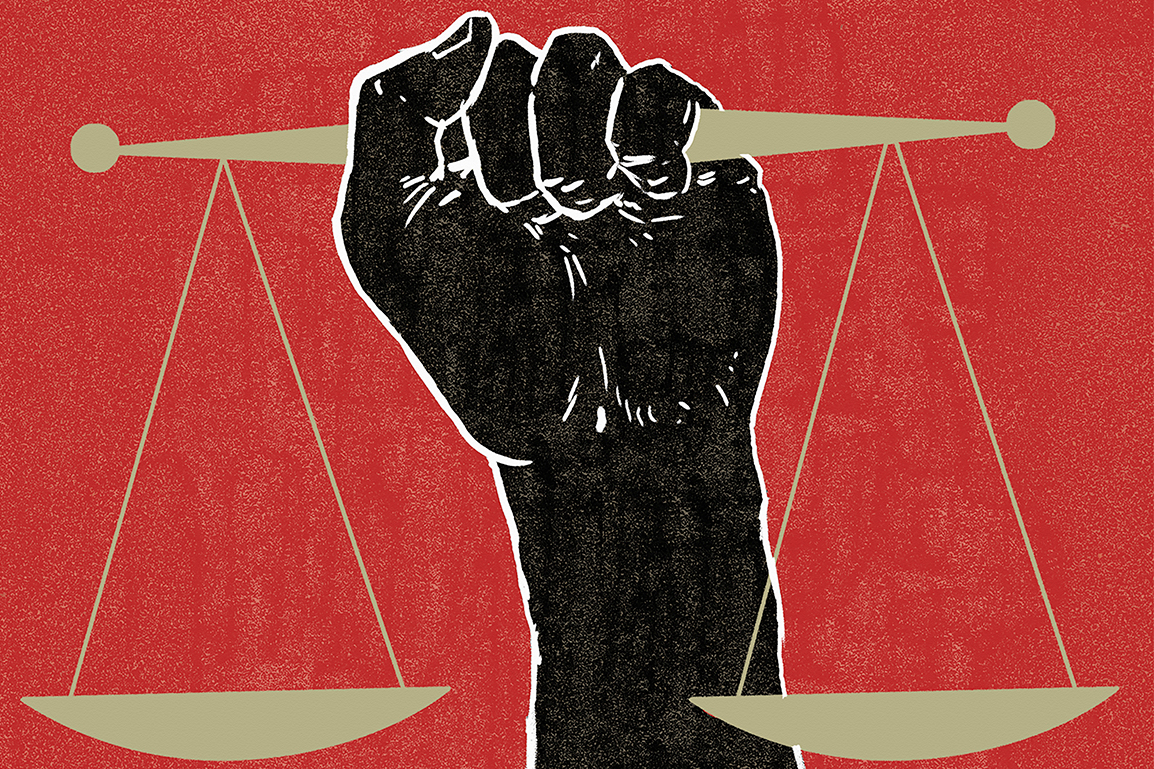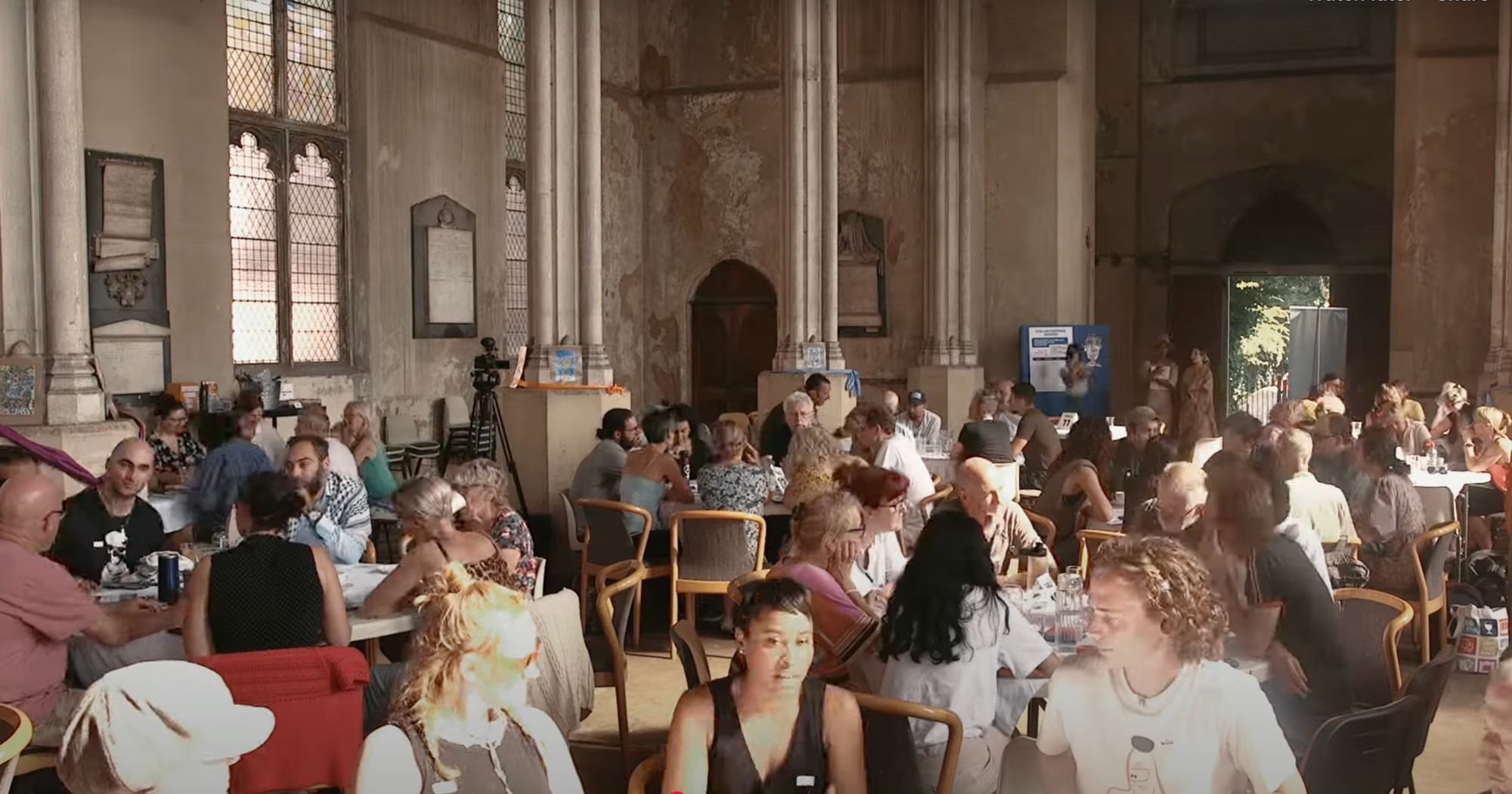🗳️ Voting isn’t Democratic. We need Sortition
Randomly selecting people to rule would be a hell of a lot better than holding elections

(This article was originally published in The New Statesman)
“We, the most humble, will win, even though you do not believe it” – Chilean Graffiti.
Democracy means rule by the people. Not rule for the people. Not rule in the interests of the people. Not rule by those who think they know what the people need most, and all the rest of it. What democracy means is, literally, the people themselves rule. Voting and elections are not democracy – they are a means to the end of democracy. If it turns out that elections and voting don’t result in the rule by the people, then we can’t use them. We need another way.
And as it turns out, voting and elections do not, and never have, produced rule by the people. What they produce is oligarchy – rule by the few. Don’t take my word for it. This was standard political knowledge from ancient times up to the French Revolution. What you got with voting and elections was a few people in charge – obviously! Because, as everyone who observes what actually happens knows, so-called electoral “democracies” are always controlled by the few. Sure, if you like voting and elections and oligarchies that’s fine. They have their pros and cons, but don’t delude yourself and others that you are a democrat. You are not. I mean, about 5 per cent or less of the elected representatives in Western “democracies” are working-class people. Depending on how you define the term, they amount to 50 per cent of the people – the poorest 50 per cent that is – and they get 5 per cent of their people to rule. Whatever this is, it is plainly not democracy. If you are a socialist, if you believe in equality, you have to be a democrat – you have to support rule by the people – the people, not just rule by the rich. Again, if you believe in voting and elections, then fine, but don’t call yourself a socialist. What you believe in is the rule by the few. Maybe you think that’s a good idea, but, again, if you do, don’t pretend you’re a democrat. You are not.
Let’s get concrete on this. In a democracy, Mrs Jones, a 60-year-old grandmother on a housing estate in Moss Side, has to have as much chance of ruling as Mr Smith, a lecturer up the road at Manchester University. If there are voting and elections, then – obviously – Mr Smith is much more likely to get to rule because he has the time, the connections, the money, the education – all that stuff. If you believe in democracy, then you cannot promote a system which makes Mr Smith much more likely to represent the people than Mrs Jones. If you believe in equality, then voting and elections are a no-no.
There is history here. The great founding fathers of the American Revolution instituted voting and elections not because they were democrats, but because they were not democrats. They hated democracy. They didn’t want democracy – rule by the mob, as they saw it. They wanted elections, so that the worthy – meaning the rich and powerful – could use their power to get themselves voted in. The electoral systems that were sold as democracy in the early nineteenth century were a lie. What we got was an oligarchy, as 200 years of history show. We were sold a dud! We just got more of the same – the rich kept their power, didn’t they? Because that is what elections and voting produce. If you want democracy you have to get all the people in the same place and then they all decide together. Meaning the people themselves rule. The rich and powerful, and those that speak for them, conned us into thinking that because this is not possible in modern societies, then we have to settle for elections and voting, which is handy, as this way they get to keep the power.
But, of course, this too is a lie. Maybe it is the biggest political lie of them all. Because you can have a sortition. It’s easy. It’s been going on for 2,000 years since ancient Athens. You randomly select people from the people, so you still get the people making the decisions. Meaning that the richest 1 per cent of people make up – you’ve got it – 1 per cent of the people in the parliament, and the bottom 50 per cent make up 50 per cent of the members of the parliament. Sortition, then, is super cool! It’s the revolution we all want.

The working class then gets 50 per cent of the representation rather than 5 per cent – not just one time, but all the time. The people, the “most humble”, finally get to rule. This is the glory of true democracy. As I say, if you don’t like it, fine, but don’t call yourself a democrat or a socialist. Call yourself what you are: an aristocrat. You believe a few are called to rule, like the people who believe that only white people should rule, that only men should rule. Because, think about it, what are you actually saying? That somehow Mrs Jones is less worthy of being able to rule than Mr Smith? That Mr Smith is basically a superior human being to Mrs Jones? Is that it? Sure, you might think this, and if you do, I would suggest this is not a revolutionary attitude but a reactionary one.
Of course, people will nitpick: who selects the people, who gets to present to them, who implements decisions? But all these things can be worked out. We have the know-how and the technology. Nothing is ever perfect, but sortition is self-evidently a hell of a lot better than elections and voting. What is really going on here is that the critics just don’t like the prospect of the people ruling, rather than them. They think their own groups should make the decisions. They are the old regime.
Sortition, then, is democracy. Sortition is socialism. As such, sortition is not open to negotiation. It is not a technicality, a scheme, or an option. It’s not an academic dream, a historical curiosity. It is what democracy is – what real democracy looks like in the 21st century. It’s what the young, the poor, the marginalised demand – they want their power. Sortition is their means of overcoming the rich and powerful. It is, in these end times, a matter of continued human existence. It is then sortition or death. Those claiming to speak for the 800,000 who have signed up to Your Party should remember: you are not the people, they are.
This article is a shortened account of the arguments presented in Roger’s new book, “Grasping the Enormity of the Moment”, on the responsibilities of Your Party.
📕 Here’s how to get a copy :
- Free copies for paid subscribers: All paid subscribers to Roger's blog can get a free ebook copy. Links to download are at the bottom of this post or the bottom of Roger's books page. Thank you for being so supportive! (If you have any problems downloading, just email us on roger@rev21.earth)
- Print copies for Revolutionary Members: If you donate £20 or more, you’ll receive a print copy of the book. So, revolutionaries, sign up to receive your copies. First batches will be sent out soon. (It's never too late to increase your donation!).
- Or buy it! If you’re a free subscriber, you can purchase the print or e-book. Please leave a review afterwards to help others find it.